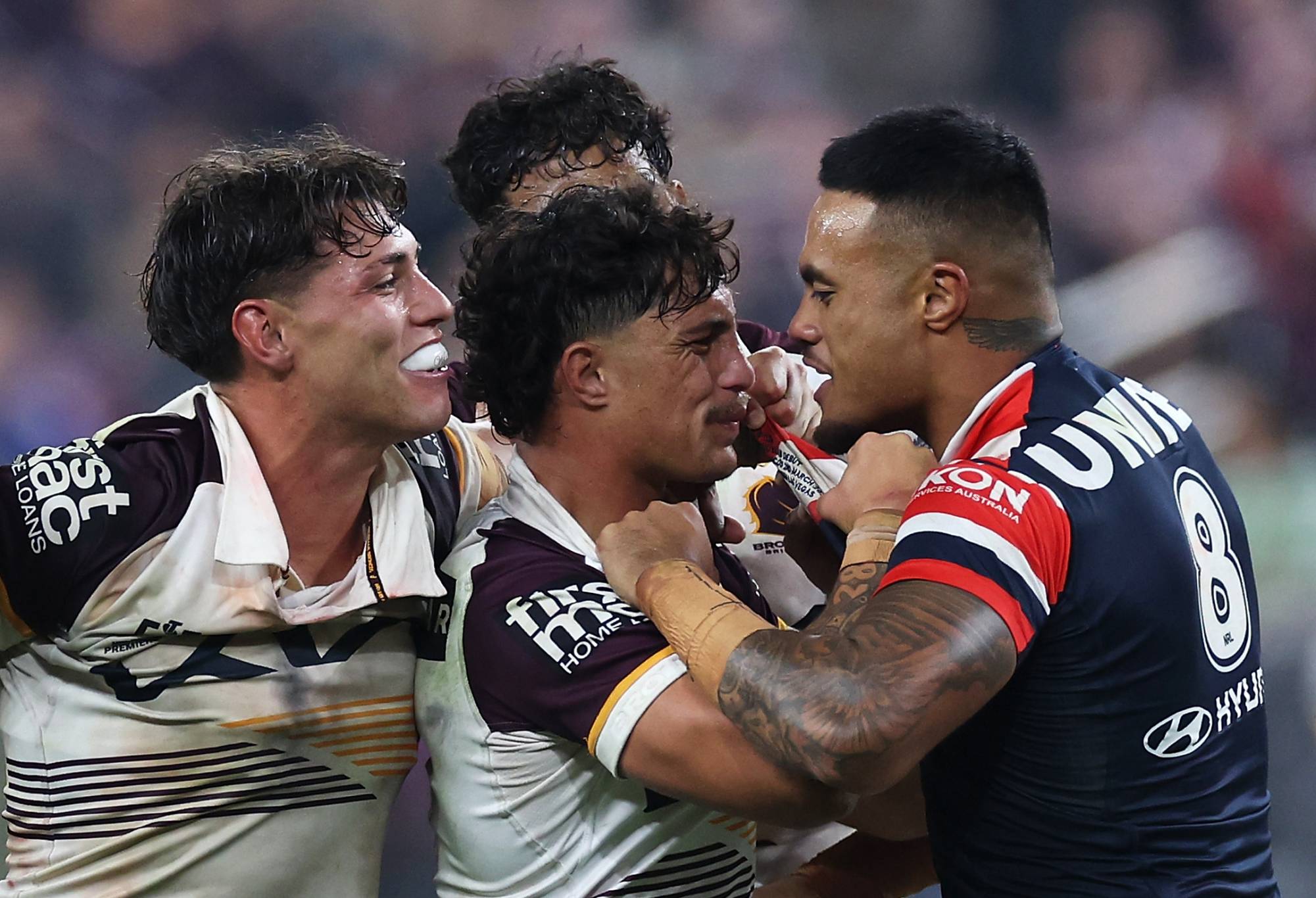It’s time for the NRL to put a line in the sand to deal with players’ on-field sledging

It seems from the authoritative source of Wikipedia that a “sledge” or “sledging” are peculiarly Australian expressions that have their origins in cricket and may be derived from the soul singer Percy Sledge.
Sledging is also called chirping, chipping, or trash talking in other sports and locations. Some sledgers and trash talkers have become icons – think Muhammad Ali. A sledge is basically an insult intended to distract or put off an opponent as a type of non-physical gamesmanship.
There are generic sledges like “the winger is slow- run at him”; “we’ve got ‘em rattled”, and there are personal sledges. Personal sledges involve targeting a player personal and usually physical or ethno-cultural characteristics in a negative way (fat, gay, black, short, red haired etc.). Racist and homophobic sledges are outlawed in most sports, including the NRL. but remain prevalent it seems. Other types of personal sledges are fair game- and again are very commonplace, from the pro ranks through to park sport.
Spencer Leniu exchanges heated words with Kotoni Staggs. (Photo by Ezra Shaw/Getty Images)
Having thought about the Ezra Mam incident in Las Vegas, I think there is a good case to introduce a code that regulates the use of all personal sledges in the same way that racist sledges are policed.
There is no good reason why professional sport, even a tough contact sport like NRL, should allow conduct that would be censured in any other environment. Arguments along the lines of ‘what happens on the field should stay on the field’, ‘harden up’, ‘it’s all fun and games’, are facile, immature and self- evidently illogical. If these arguments are to be accepted in the NRL then why wouldn’t they be accepted in tennis or in the classroom or in the workplace?
Yes, NRL is a tough sport, but this provides insufficient cover to say and do things which are way outside any parameters of normal behaviour. In any case, the NRL has crossed the Rubicon by outlawing racist and homophobic slurs, so it’s time it to look more broadly at personal slurs such as those involving physical characteristics and reference to players’ wives and family members.
The line between gamesmanship and competitive trash talk and personal slurs can be a fine one but most sensible people can differentiate the two. It’s a matter of content, tone and circumstances.
If the NRL published some supplementary guidelines it might provide some clarity on what is acceptable and what isn’t. I’m not advocating for on field punishments such as send offs for calling a player fat, although in appropriate circumstances, that might be appropriate. However post match reviews should consider personal slurs beyond the racist and homophobic that go beyond the bounds. In appropriate circumstances punishments should be meted out.
Brisbane’s Reece Walsh was suspended for 3 games in 2023 for abusing a referee. (Photo by Bradley Kanaris/Getty Images)
Of course, many or even most people reading this will be outraged and incredulous and thinking the idea of further regulating sledges is stupid – but why? It is just an extension of the present ban on racist and homophobic slurs and most sensible fans and others involved in the game think that ban is sensible. Further, what would be lost from such an approach and what would be gained?
Who thinks the game is for the better because players can make gross comments about players girlfriends or make silly homophobic comments or body shame players? On the other hand, what would be gained is a more sporting, and frankly more manly and aspirational game. There is nothing noble or manly or ‘hard’ about calling someone a name. I fully expect there is personal sledging going on in the NRLW too, and this should also be addressed.
Lastly, the NRL has poured a lot of resources into indigenous round and the NRLW and on inclusivity initiatives and this is great for the game. Looking more closely at regulating non-physical abuse and sledging would also do a lot to make the game more inclusive and better received in the wider community.
